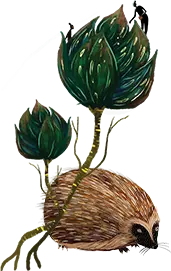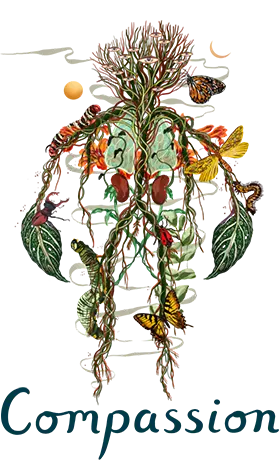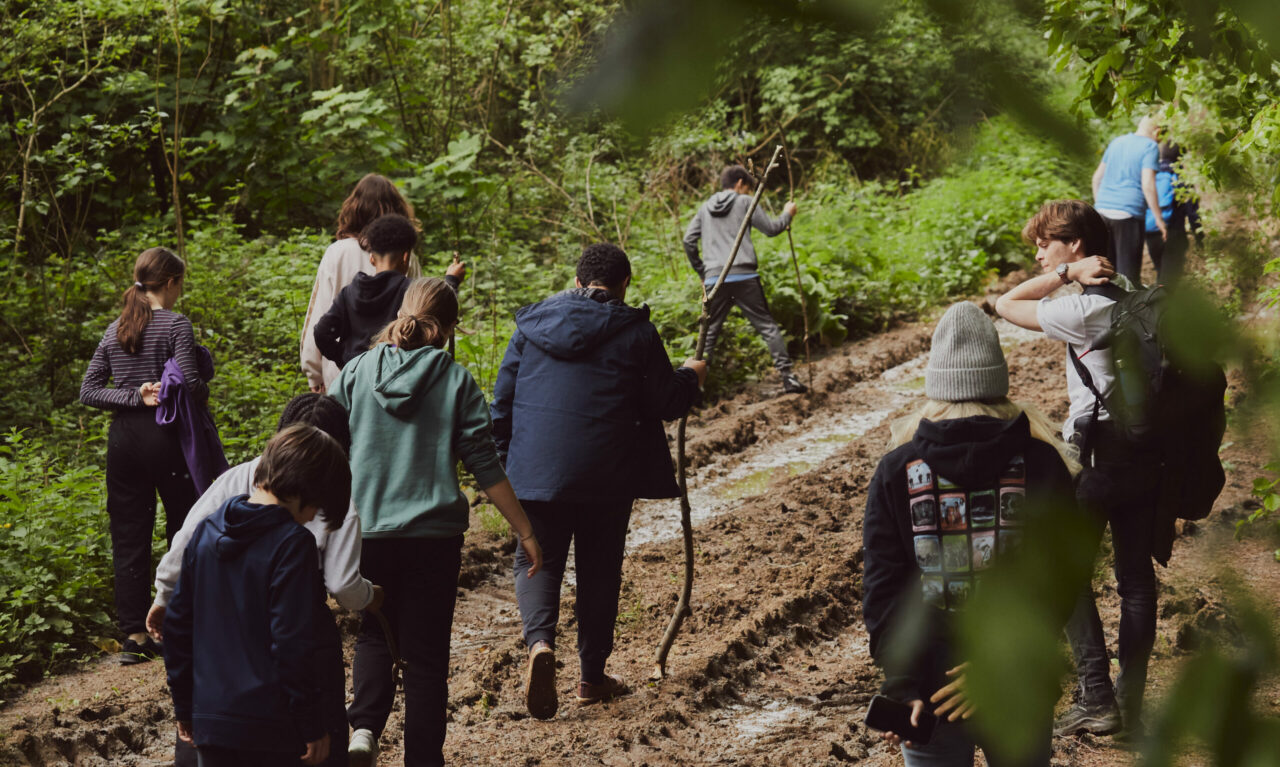
Compassion through the eyes of Lisa
Meet Lisa Hoerning
Lisa has just finished a year of travel and is about to start studying Geography and Politics at the University of Exeter. Over the years she has been involved with various environmental initiatives, organisations and started her own project through the Bertha Earth Changemakers programme.
Though Nature has always been part of her life, she started to rediscover and reconnect with the Nature around her more recently. As a child, she was always happiest in the outdoors, but as life got busier, seemed to lose this connection. Through opportunities within school she learnt a greater level of appreciation for the natural world again; training for a hiking competition on Dartmoor was where she learnt to respect Nature’s strength and feel a responsibility to protect the natural world around her.

Compassion for Nature, to me, is about recognising that our own well-being is tied to the well-being of the planet.
Therefore, to show compassion towards the natural world is to show compassion to ourselves. We’re only temporary guardians of this earth, and we have a responsibility to ensure it is passed down in good health; we have an amazing opportunity to rewrite the wrongs of previous decades and instead pave a future of prosperity for our planet.
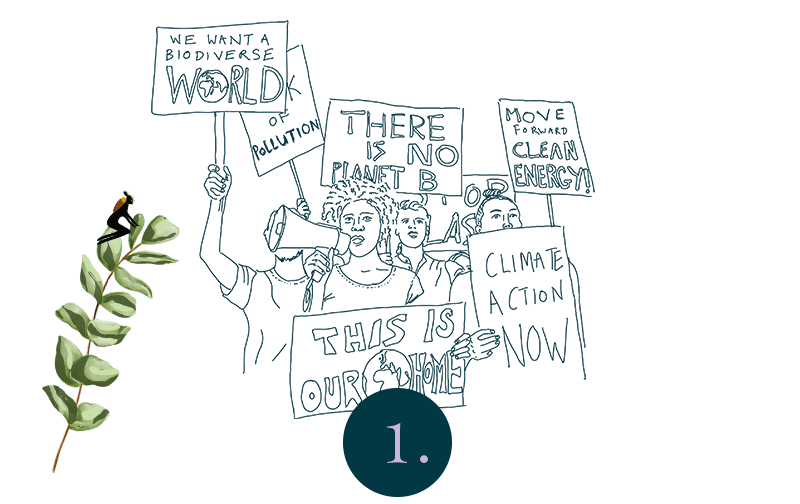
Find Community
I’ve always felt compelled to stand up for Nature. As I learned more about the damage happening to the world around me, I got involved in movements like the school climate strikes and applied to join the Bertha Earth Changemakers programme. I wanted to be part of a community of like-minded people and learn more about the environmental movement. That time was transformative for me, as I began working on personal projects and dedicating more time to the cause.
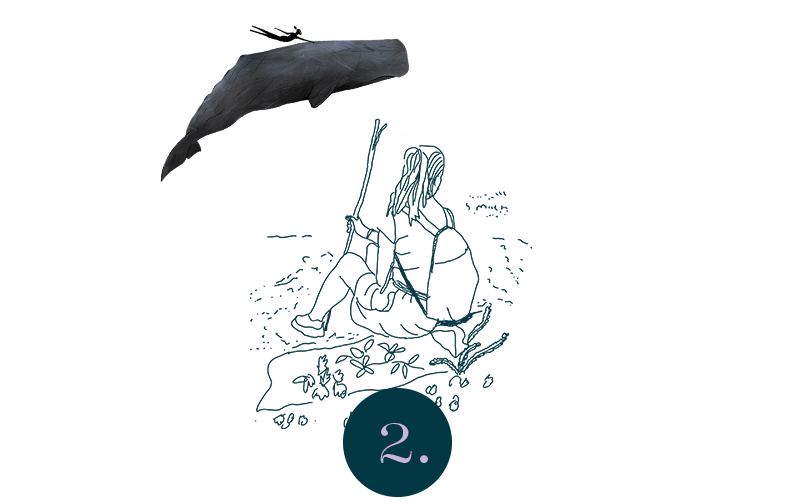
Reconnect with Nature
One of the most important things I’ve learned is that reconnecting with Nature helps you slow down and stay present. It reminds us to be more gentle to ourselves, we should let it guide us. Through this connection, and doing things like hiking, surfing, and witnessing firsthand the declining biodiversity, eroding coastlines, and pollution, I’ve been able to appreciate the small details in life and be kinder to myself.
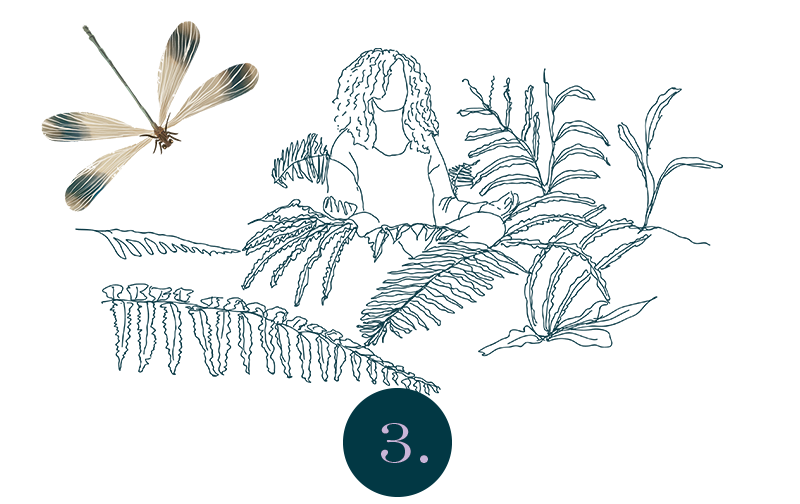
Hold Nature in Your Consciousness
Simply being more aware of Nature in your daily life can help you notice how things are constantly changing. Compassion for Nature can start with this awareness — just holding space for Nature in your mind.
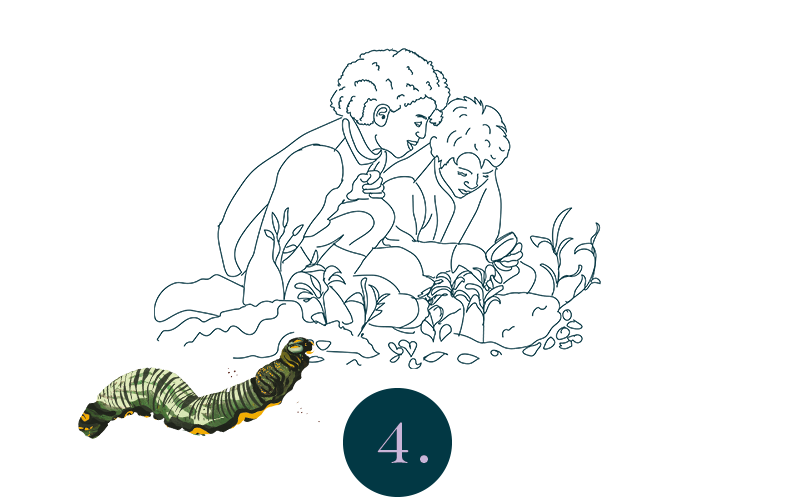
Turn Learning into Action
Once you start noticing Nature around you, turn what you learn into action, very small or very big — we need it all! Nature doesn’t have a voice so we need to speak for it. I’ve expressed my compassion for Nature by getting involved with climate strikes and environmental programmes. Whether it’s global or local, through activism, volunteering, or small changes in your daily routine, you can find ways to stand up for Nature and protect it.
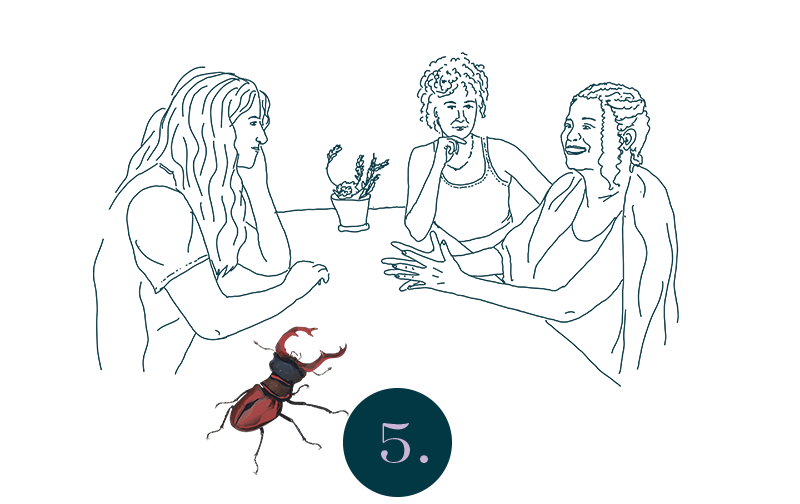
Find what Already Exists
I found avenues to enter into the internal structures of environmental charities, the likes of the RSPB, EarthEcho and Groundwork. I’ve been involved in shaping reports and policies, leading Nature summits, and developing my personal values and motivations. I know I’m just at the beginning of a lifelong journey to deepen my compassion for the natural world.
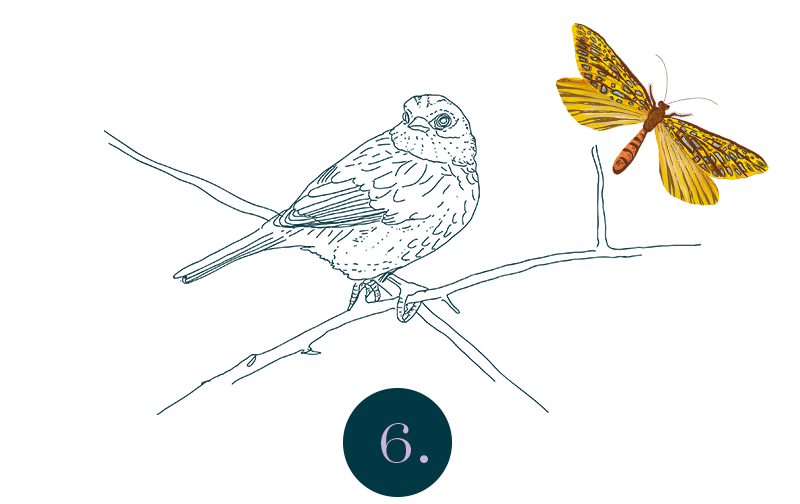
Don’t be Hard on Yourself
Of course, there are challenges — society constantly pushes us to work harder and consume more, making it difficult to take the time to notice the Nature around us. It’s easy to overlook the bird flying overhead or the plants growing through cracks in the pavement. Balancing my environmental work with being a young adult hasn’t always been easy, but I’ve learned to prioritise the things that matter.
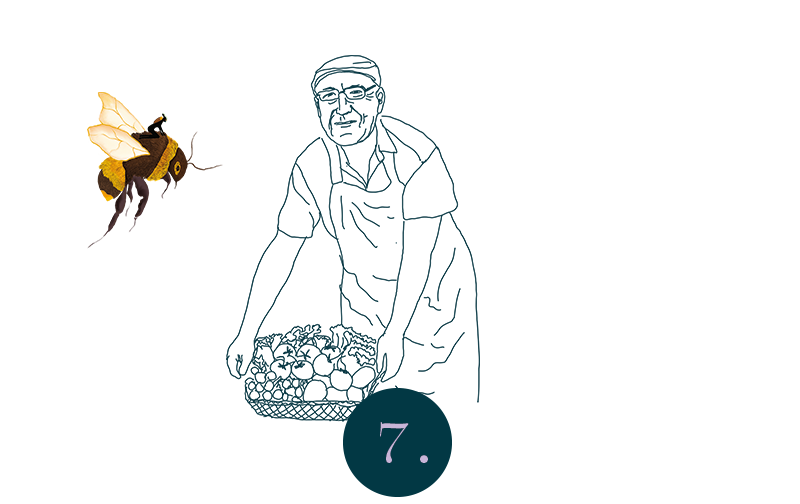
Be inclusive
I have been inspired the most by those of my grandparents age and older — from my Grandad to the XR activists whose kowledge of the natural world is incredible and precious. There is a lot of emphasis and pressure that young people are the future, that young people are the change makers and that young people now hold the responsibility to ‘save the world’. By saying this, we unconsciously remove older generations from the conversation, responsibility and solutions; we need the wisdom, experience and compassion from these age groups desperately. Diversity of thought is vital for finding solutions to complex problems and this includes diversity in age.
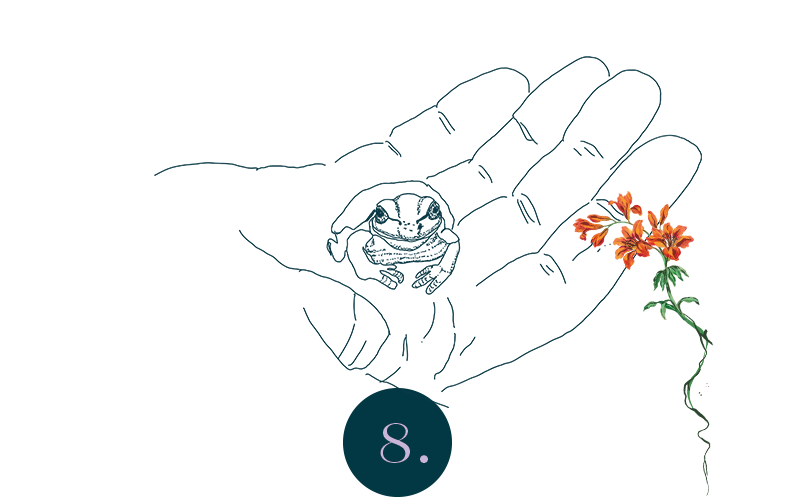
A new perspective
Through my work on youth councils and boards I was inspired to learn more about Nature. The other young people I worked with could tell you the name of a bird from its chorus and the intricacies of a coral reef ecosystem when they walked through a forest or walked along a shoreline, I got to witness their joy and love for what was around them. They saw the natural world in a way that was completely new to me; yearning to feel this too, I went on a search to understand the world around me in a way I had never before.
“In the end, compassion for Nature is about taking responsibility for our role in the world. By reconnecting with Nature, being aware of it in our daily lives, and taking meaningful action — big or small — we can all do our part to protect the planet for future generations.”
~ Lisa Hoerning
Connect with Lisa
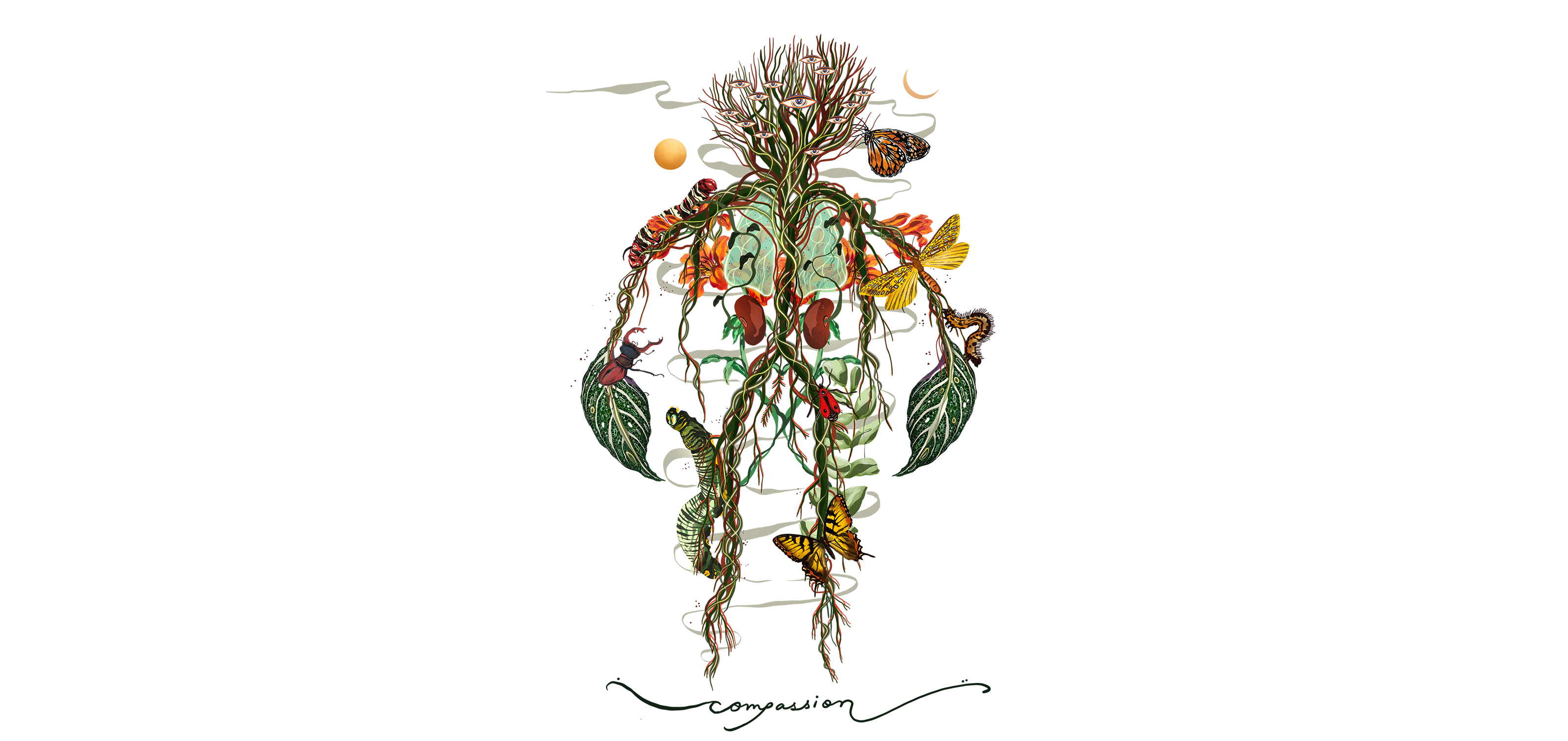
Ready to join the challenge?
Need more inspiration…




